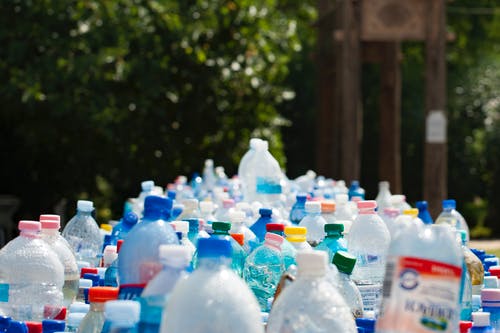
Posted: Jan 30, 2020

The University of Bath and Birmingham research aims to overcome the challenge of plastic products losing their quality as they are recycled.
Scientists develop new method of recycling plant-based plastics
Scientists from the University of Bath and the University of Birmingham have developed a new way to break down plant-based plastics into their original building blocks, potentially allowing products to be recycled repeatedly without a loss in the quality of the plastic.
Around 45 percent of plastic waste is reportedly recycled annually in the UK and the percentage is said to be on the rise. However, one of the problems with current plastic recycling methods is the fact that the end product is considered to be a lower quality plastic with worse properties than the original. This means that plastic beverage bottles cannot simply be recycled into new bottles continuously, but instead are used for other lower grade products such as water pipes, park benches and traffic cones.
The scientists developed a new way of chemical recycling – converting plastics back into their constituent chemical molecules – so that they can be used to make new plastics of the same quality as the original. The team’s method reportedly used lower temperatures and more environmentally friendly catalysts than previous methods.
“Most plastic is currently recycled using mechanical methods, where they are chipped into granules and melted down before being moulded into something new,” said Professor Matthew Jones, from the Centre for Sustainable & Circular Technologies at the University of Bath.
“The problem is, melting plastic changes its properties, and reduces the quality, which limits the range of products in which it can be used.
“Our method of chemical recycling overcomes this problem by breaking down plastic polymers into their chemical building blocks, so they can be used all over again to make virgin plastic without losing any properties.”
The researchers recycled plant-based PLA, which is made from starch or crop waste instead of petrochemicals, and is used in ‘biodegradable’ food packaging and disposable cutlery and cups. PLA is not currently recycled because it is not widely used, however with growing awareness of plastic pollution, the demand from consumers for recyclable packaging is considered to be growing.
The team has also started trialling a similar process for recycling PET, which is used for beverage bottles.
“PLA is being increasingly used as a sustainable alternative for single-use plastics. Whilst it is biodegradable under industrial conditions, it does not biodegrade with home composting, and is not currently recycled, so at the moment it commonly ends up contributing to the tonnes of plastic waste in landfill and oceans,” commented first author of the paper, Dr Paul McKeown from the University of Bath.
By Sam Mehmet
January 30, 2020
Source: Newfoodmagazine.com
Go-Wine's mission is to organize food and beverage information and make it universally accessible and beneficial. These are the benefits of sharing your article in Go-Wine.com


The Wine Thief Bistro & Specialty Wines is a locally owned small business in downtown Frankfort, IL offering world class wines in a relaxed, casual gathering spot for friends and family. Offering world class virtual tastings and touchless carryout.
https://www.twtwineclub.com/aboutus
Go-Wine 25 Great Wineries in US selection prioritizes quality, value and availability.
www.go-wine.com/great-wineries-in-america
Tasting wine is a nice experience, but visiting the places in which wine is made is a magic moment. Available in New York City for touchless pickup.